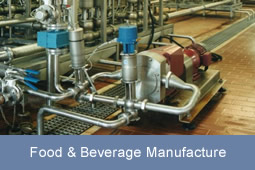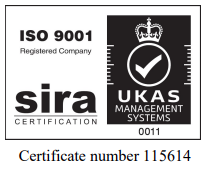Environmental Permitting Regulations have had significant impact
Environmental considerations are of paramount importance for all types of industry and are underpinned by stringent environmental legislation.
The cost of non-compliance has been recently demonstrated by a number of headline cases publicised in the trade press with several major Water Utilities receiving fines in excess of £250,000 for past non-compliance. A maximum fine has been set at £3,000,000.
The Sentencing Council has published a definitive guideline on environmental offences which combined with the Environmental Permitting Regulations, has had a significant effect on how courts in England and Wales deal with environmental offences.
Sentencing Council legislation guidelines for industry
The Sentencing Council’s guidelines cover offences where an organisation causes pollution or harm or the risk thereof to the receiving environment. For Water Utilities, a failure to comply with a site permit and discharge pollution which may affect local amenities, can now result in a very sizeable fine.
The guidelines are divided up into two parts; dealing with organisations and individuals. Each set of guidelines involves an assessment of culpability and an assessment of harm.
Culpability is categorised in four bands:
- Deliberate
- Reckless
- Negligent
- Low or no culpability
Harm is also categorised in four bands:
- Category 1 – harmful nature
- Category 2 – significant adverse effect or damage
- Category 3 - minor localised effect or damage
- Category 4 - risk of category 3 harm or damage
Whilst the risk of harm is regarded as less serious than actual harm, the potential to cause pollution is also a material consideration in any case.
Businesses are being categorised by their size, measured by turnover. Large companies are defined by a turnover of over £50 million.
Since introducing the new guidance, fines have escalated; for a large company the expected fine has increased more than ten fold to a maximum of £ 3 million.
Smaller companies have also been affected. A company with turnover between £2-10 million may be fined up to £400,000 and a company with a turn over between 10-50 millions may receive a fine up to £1 million for a serious pollution offence.
So whilst environmental compliance is good practise and good PR and it now also makes good commercial sense. The cost of doing nothing to mitigate risk are now may be disproportionately high relative to receiving a significant fine for a breach of consent. A clear message is being sent to the industry to take note and implement all reasonable steps to maintain environmental compliance and prevent pollution of their local environment.
Reliable water quality monitoring systems
The installation of a reliable water quality monitoring system is a relatively small investment but has the potential to avert non-compliance with an obvious cost benefit.
Pollution & Process Monitoring Ltd is a leading expert in the design, supply and maintenance of continuous monitoring systems designed to identify in real time, unacceptable water quality.
More information? Get in touch!
If you would like more information relating to this product or the services Pollution PPM can provide, please Contact Us.
For International enquiries, please contact one of our dealers listed on the following page - International Dealers








